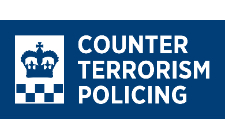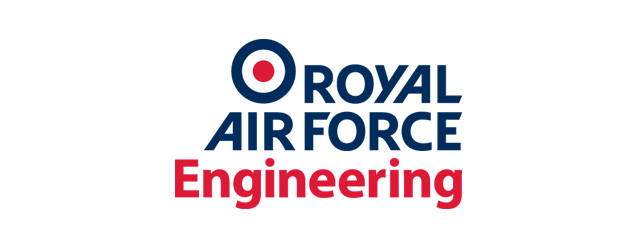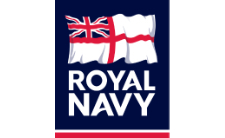The uniformed services are roles to help aid and protect the public. Job security is generally high, with good starting salaries for graduates and the potential to advance further within your field. There is an element of risk when working within the uniformed services and your actions can directly affect this so good decision-making skills are essential.
The main areas of work that the uniformed services encompass are:
- The Police
- Fire and rescue service
- Nurses and Paramedics
- Armed Forces
Police offer roles
The ultimate role of a police officer is to reduce crime and keep people safe. Your role will depend on what force you work with and whether you choose to specialise after your training.
Anyone who wants to be a police officer will need to complete a two-year probationary period working on the beat as a patrol officer. You can continue to work on the beat, with many officers choosing to so, however there is always the option to transfer to more specialist areas of work.
Working as a police officer is a very exciting but dangerous job, requiring a special type of person. Working as a police officer is a job with a great future because after gaining experience, you can specialize in specific areas such as the mounted unit which rides horses, the K-9 unit which works with police dogs, or the air unit which uses helicopters to search for missing people. All of those mentioned areas are very exciting areas of police work. Working as a police officer means that you work shifts that can include nights and public holidays.
What are employers looking for?
You will need to pass a fitness test and exam in order to join the police force. Graduates are highly sought-after so job opportunities are likely for students and there is great potential to rise up the ranks. Organisational skills, patience and decision-making skills are important qualities to highlight to the employer and an ability to demonstrate your team-player and communication skills will also be beneficial.
Is it the right career for me?
Starting salaries for graduates within the police force are on average fairly higher than most starting graduates salaries, and job security is relatively high, which also means the potential to advance fairly quickly within the field. Hours can be sporadic and you will find yourself dealing with a range of difficulties and different people. Patience is key, as well as being mentally fit.
Fireman graduate roles
Career prospects
The benefits of becoming a fireman are substantial, you will have a very secure life long career, the pay is decent, and you get lots of time off due to the nature of shift work.
Due to the nature of their duties, firemen must be physically fit and in good health. It is crucial your eyesight, colour perception and hearing are all good, and you must a full driving license. Shifts usually last around eight hours.
Becoming a Fireman in the UK is a lengthy and challenging process. Nine out of ten applicants are declined, so it is vital that you do everything you can to give yourself the edge over the competition.
Employers ensure that there are enough training facilities available where firemen can exercise.
Firemen often handle mechanical equipment and must have some mechanical aptitude as well as computing competency to calculate certain costs. Firemen work indoors as well as outdoors. It is essential to have firemen on duty at all times, and therefore firemen work shifts. Normally a shift lasts eight hours. Fringe benefits depend on the specific employer and may include uniforms, medical aid scheme and pension fund, annual leave, thirteenth cheque and a housing subsidy.
You will need to have a sensitive and thoughtful approach dealing with public, as often you may be dealing with them in tragic circumstances. You will also need to be able to remain calm under extreme pressure, be an excellent team player, but also able to follow orders and instructions accurately.
What are employers looking for?
Firstly, your physical abilities will be most key, and you will need to be in good health – good eyesight, good hearing – and will have to pass fitness and medical tests. Your ability to communicate and your effectiveness as a tem player will be important, as being a fireman is not about working on your own or for yourself. You will need to be passionate about the role, and demonstrate the potential to handle difficult situations, as you may sometimes have to deal with tragic incidents.
Is it the right career for me?
As explained before, you will need to be physically fit, be able to remain calm under extreme pressure, be an excellent team player, and also follow orders accurately. Expect to work long and sporadic hours, but you also get flexible and long holidays and pay is steady – there is always a need for firefighters.
Graduate Nurse roles
Career prospects
Nurses will find themselves constantly on their feet and at times in extremely stressful situations. Starting salaries are just above average for most graduates. Nurses can work in a variety of environments, from hospitals to homecare with a variety of patients. You will need to be patient and strong-minded, and be prepared to work long and variable hours. Good relations with your peers and co-workers are helpful in improving communication and organisation. Nurses will also need to be prepared to take orders from doctors and take care of patients personally.
Armed Forces
The opportunities in the Army are vast. Whether you go into medicine, mechanics or the front line, the Army offers hundreds of trades suitable for a wide range of graduates
Many people join the Army because they want to be challenged. It’s a career that will push you to your limits both physically and mentally. Officer Cadet Jemma Morgan says: “Whilst I enjoyed my job in the civilian worked I found the lack of variety and challenge meant I looked for something else; the Army offered the things I was looking for: a challenge, variety and a meaningful career.”
People in the Army need to think under pressure and react quickly to any given situation. Captain Dale Taft, Royal Signals reveals: “You need to be able to process information and have the ability to remain composed while making informed decisions in a dynamically evolving and complex environment.”
For those that get deployed abroad, the strain of spending long periods of time away from family and friends can take its toll. Office Cadet Simon John Phillips says: “I have only seen my girlfriend twice in the past three months. It is a different lifestyle – you have to commit to it.” Similarly, Emma remarks: “It is hard on friends and family, but having said that, you bond so closely with people that you are working with – people that you have known for a couple of weeks just feel like your best mates.”
However, the Army offers a hugely rewarding career. Graduates can expect to earn £24,615 when they start training and will earn at least £29,587 afterwards. If you are still serving five years on, you could be earning at least £37,916 as a Captain.
For medical students, the Army offers more senior roles, which can fasttrack your career. For example, Emma Claire Jude who is a trained vet in the Royal Army Veterinary Corps, says: “You have levels within you pay scales – I’ve already got a year of experience and I did go in slightly higher.”
In addition, the Army can support you with scholarships and bursaries for further education, or even if you are particularly talented in a sport. Pharmacist Emma Clarke explains: “I sail at a very competitive level and the Army has really helped me. I have been able to compete as part of the Olympic development squad with their support.”
So what qualities does the Army look for? “Intellect and a practical application of that intellect,” reveals General Patrick Marriott, “we are looking for bright, enthusiastic people.” In terms of university education “it doesn’t really matter what degree they have – it is whether that degree has taught them to think widely.”
And how do you get in? Many have experience of Officer Training Corps (OTC) at university, which is a paid for student club. You’ll also find Army careers offices in the high street where you can find out more information.
Key articles for those looking for a career in uniformed services:
For over 30 years Clyde Marine Training has been the first choice for those looking to pursue Merchant Navy careers, and we are recognised as the UK’s largest maritime training company. At any one time, we manage approximately 1,000 cadets on behalf of numerous shipping companies across the globe. These include some of the largest […]
The Metropolitan Police Service (MPS) is the territorial police force responsible for law enforcement in Greater London. The Met also has significant national responsibilities, such as co-ordinating and leading on UK-wide national counter-terrorism matters, the protection of the senior members of the British Royal Family and also the protection of members of The Cabinet and […]
Police Now is a charity which strives to transform communities by inspiring, recruiting and developing leaders in policing. Our National Graduate Leadership Programme and National Detective Programme offers you a career opportunity like no other: developing leadership skills in a unique environment while making a real and lasting difference to vulnerable communities that are impacted […]
The RAF polices the skies, protecting the UK from threats at home while peacekeeping abroad. Our roles offer skills for life, and a chance to play a part in operations around the world – from providing humanitarian aid to preventing a civil war. From Aerosystems to Communications to Electronic Engineer Officers, there are unrivalled opportunities for […]
We are a world-class organisation – and we need world-class graduates to lead our multi-skilled teams. Our challenging officer roles require dynamic people in skills ranging from engineering to nursing, and from air operations to logistics. The training package is first-rate and it’s backed by major lifestyle benefits and extensive travel.
Royal Navy careers. A job in the Royal Navy means adventure, camaraderie, and lifelong prospects. Every day is different, whether you‘re policing oceans, delivering aid during disasters, or engaged in combat. Join us and be a key part of global operations. Ready for adventure?
Joining the British Army, you’ll get much more from life than you ever would with a civilian career – you’ll have the opportunity to do something that really matters, with a team that are like family to you. The sense of belonging in the Army is next level: when you’ve trained with each other and […]










